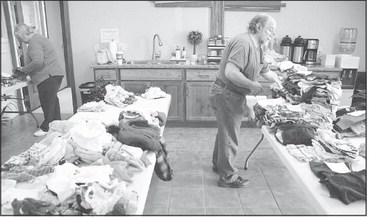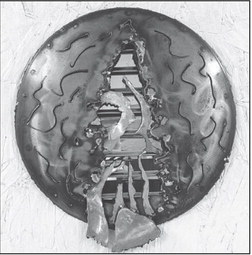Fix public records loophole caused by bad ruling
When governments start playing cute with public records, citizens suffer.
Wisconsin has some of the strongest public records laws in the country, with a presumption that all records are open and available for review by any resident for any reason unless there are specific exemptions against the governmental body releasing the information.
This stated commitment to public access doesn’t prevent some in state, regional, and local government from wanting to keep documents hidden from public view. Often this is to cover the misdeeds or embarrassment of a person or individual. Other times, it is done through personal dislike of the person or group making the request. Still other times, it is done with misapplied good intentions. The public should be suspicious any time government hides its actions behind a veil of secrecy.
Regardless of the reason, every year individual citizens, private agencies, and news organizations face having their public records requests slow-walked, denied outright, or ignored by public officials around the state.
If the people making the requests are ornery enough, they will hire an attorney and file a lawsuit against the government entity refusing to release the records. The end result of this lawsuit is for a judge to order the government agency to release the records. It costs money to hire attorneys. The law allows those who win their open records suits to have the violating agency pay these legal fees in addition to releasing the records.
Where governments are trying to get cute is by waiting until the 11th hour to release the records, after an attorney has been hired and after a legal action has been filed, but before a judge rules against them. Under current Wisconsin Supreme Court precedent, this allows the offending government agency to skirt having to pay the legal fees.
The government agencies are exploiting a loophole created by the 2022 Supreme Court opinion, Friends of Frame Park, U.A. v. City of Waukesha, that takes a narrow interpretation of the word “prevail” in the public records law. In the case, the court ruled a judge must affirmatively order a unit of government to turn over public records for a requester to “prevail” and, therefore, be eligible to seek reimbursement for legal fees.
By waiting until just before a judge rule against them to hand over the requested documents, government officials are playing cute with the intent of the public records laws. The government official will have succeeded in delaying releasing the records while saddling the requesting individual with a pile of legal bills.
A broad coalition of media and public interest groups is working to get the law changed to close this loophole and codify the original broader interpretation which allowed courts to determine if the legal actions of a requester had played a significant role in the records release. By codifying the previously used broader definition of prevail in Wisconsin statues, the legislation will remove the perverse incentive for governments to hold on to public records until a lawsuit is filed. Last session, this bill received broad bi-partisan support, passing the State Senate unanimously.
Contact your state representative and state senator and tell them to support closing this loophole.
State statute regarding public records 19.31 Declaration of policy. In recognition of the fact that a representative government is dependent upon an informed electorate, it is declared to be the public policy of this state that all persons are entitled to the greatest possible information regarding the affairs of government and the official acts of those officers and employees who represent them. Further, providing persons with such information is declared to be an essential function of a representative government and an integral part of the routine duties of officers and employees whose responsibility it is to provide such information. To that end, ss. 19.32 to 19.37 shall be construed in every instance with a presumption of complete public access, consistent with the conduct of governmental business. The denial of public access generally is contrary to the public interest, and only in an exceptional case may access be denied.
The Tribune Record Gleaner editorial board consists of publisher Kris O’Leary and Star News editor Brian Wilson.


